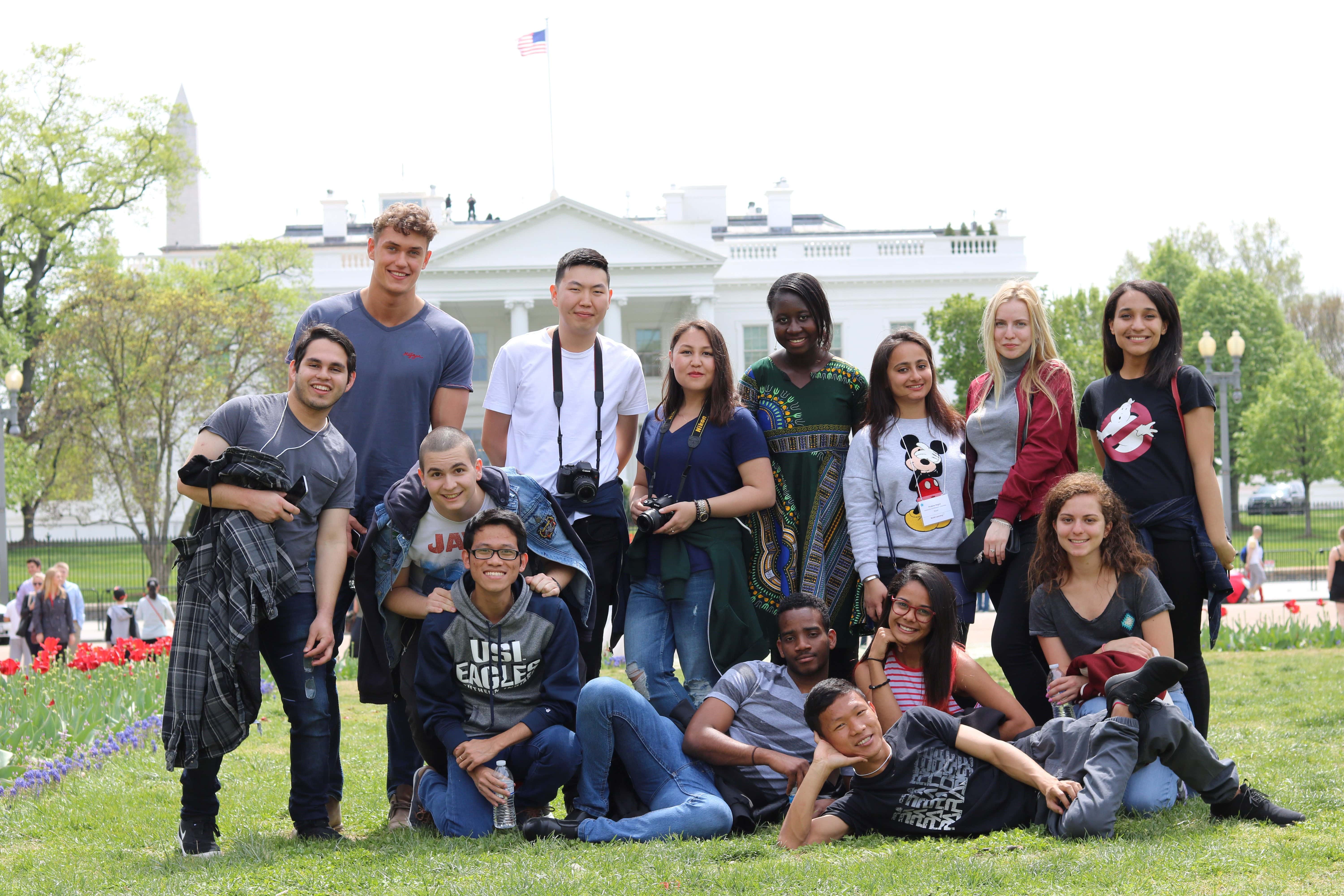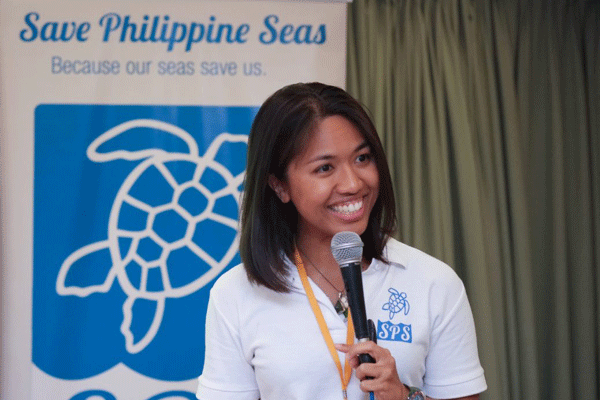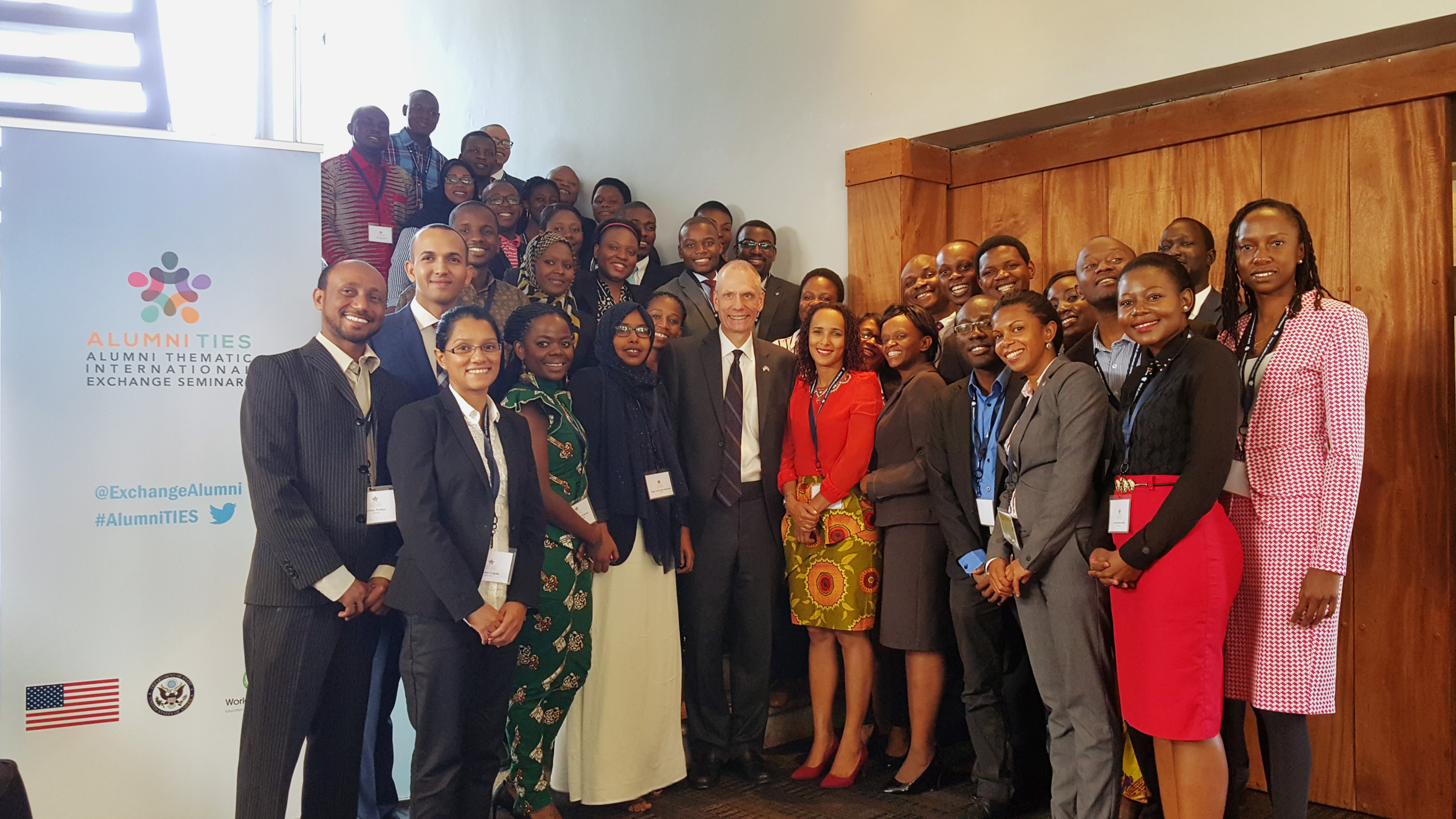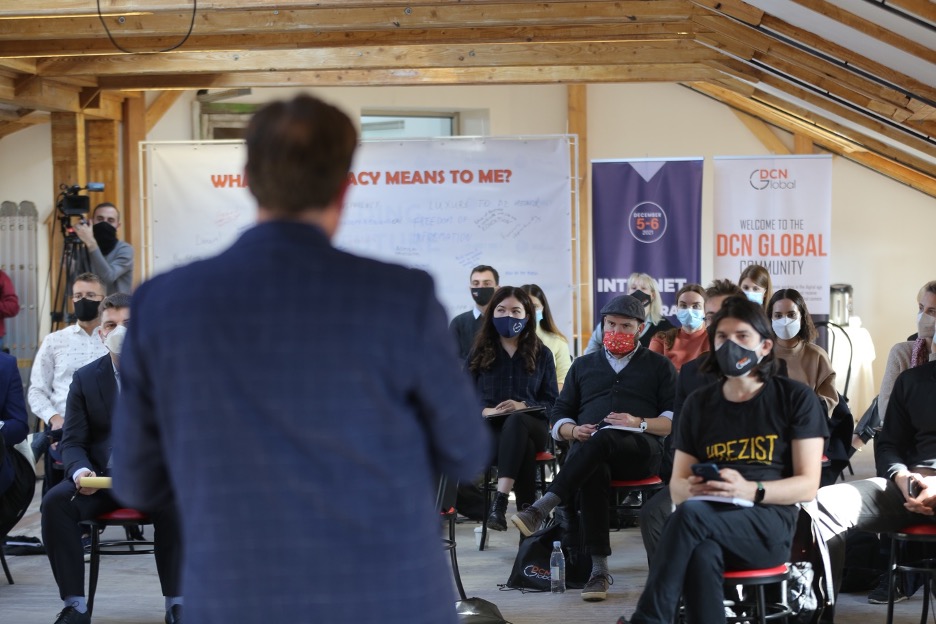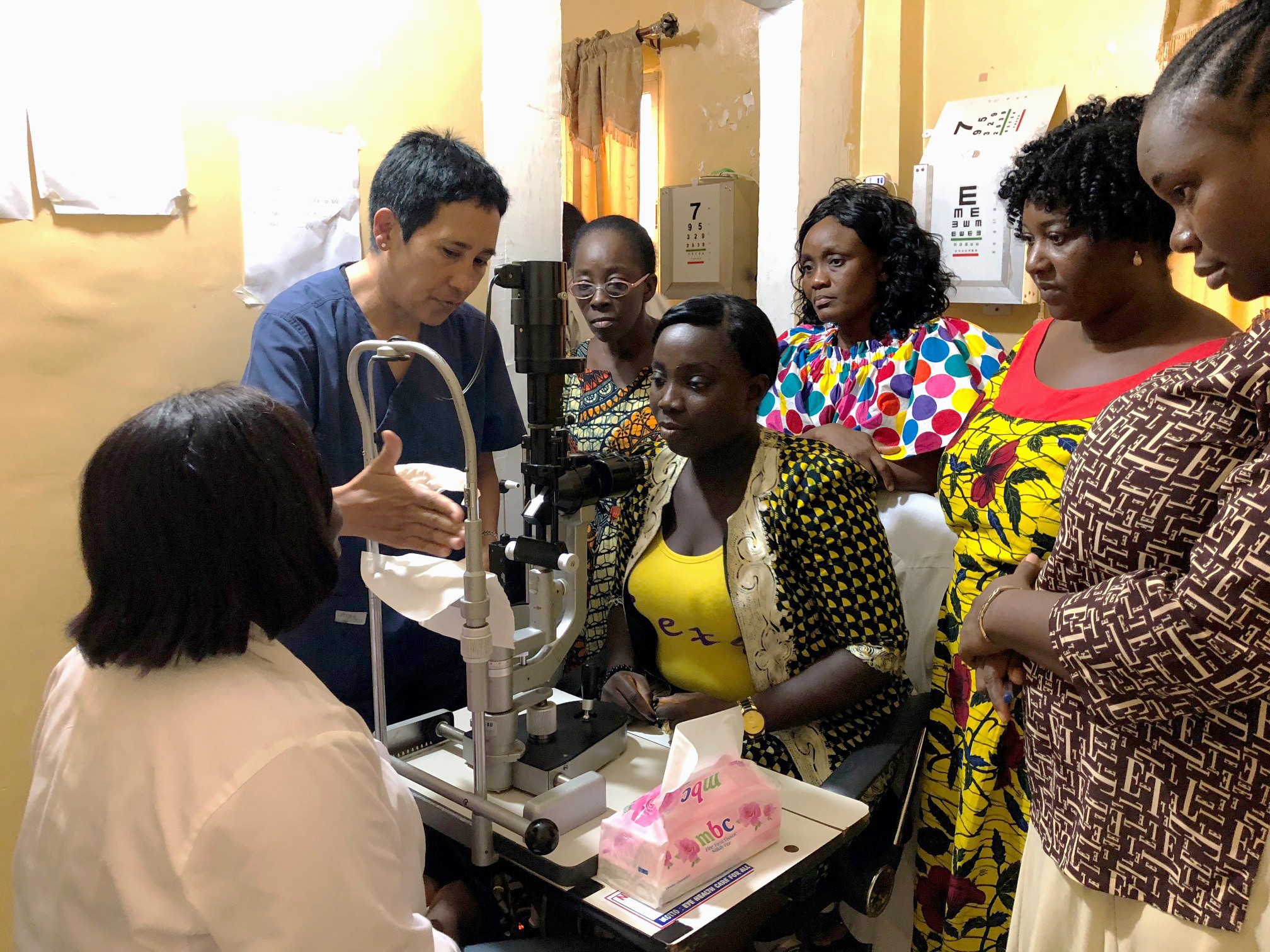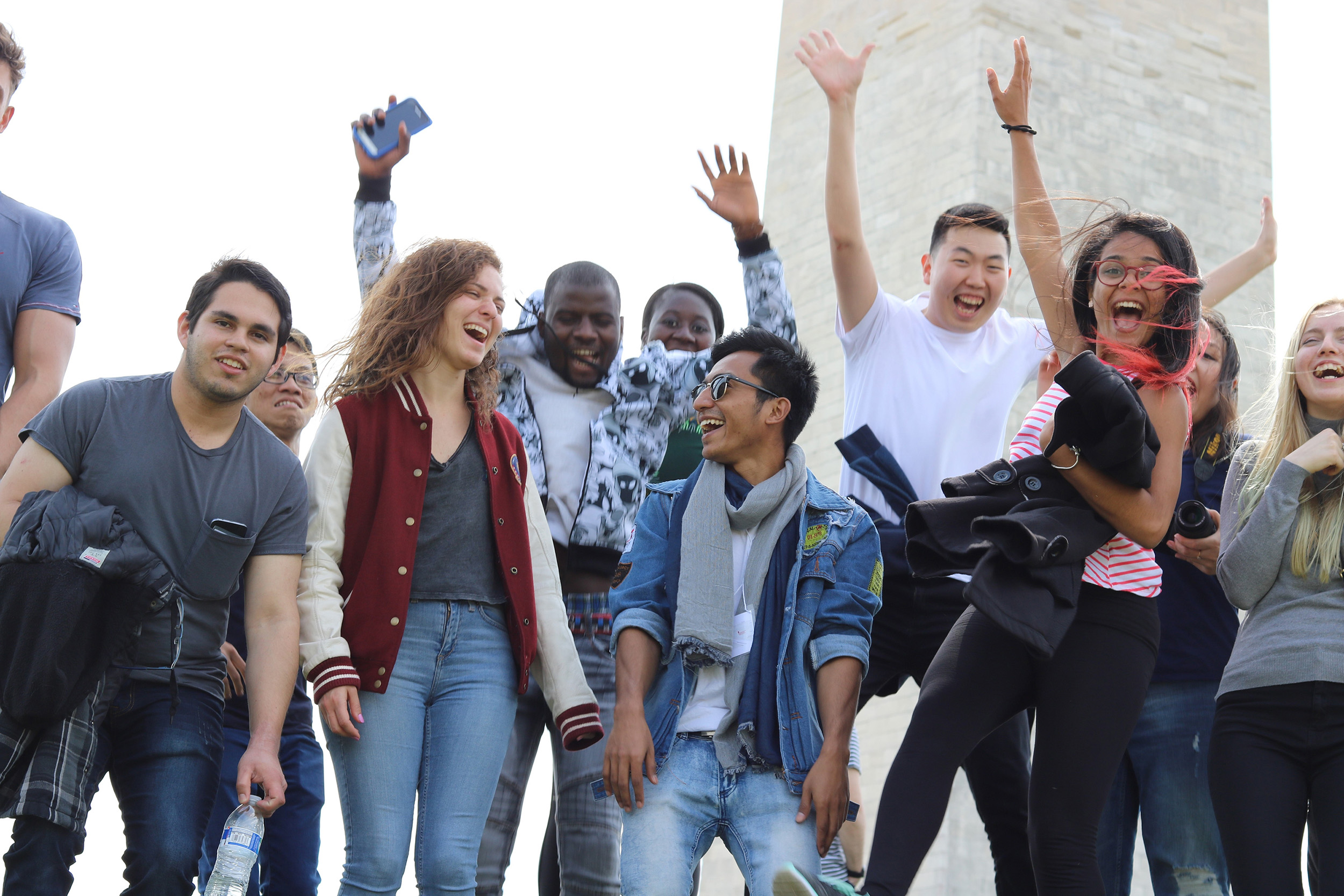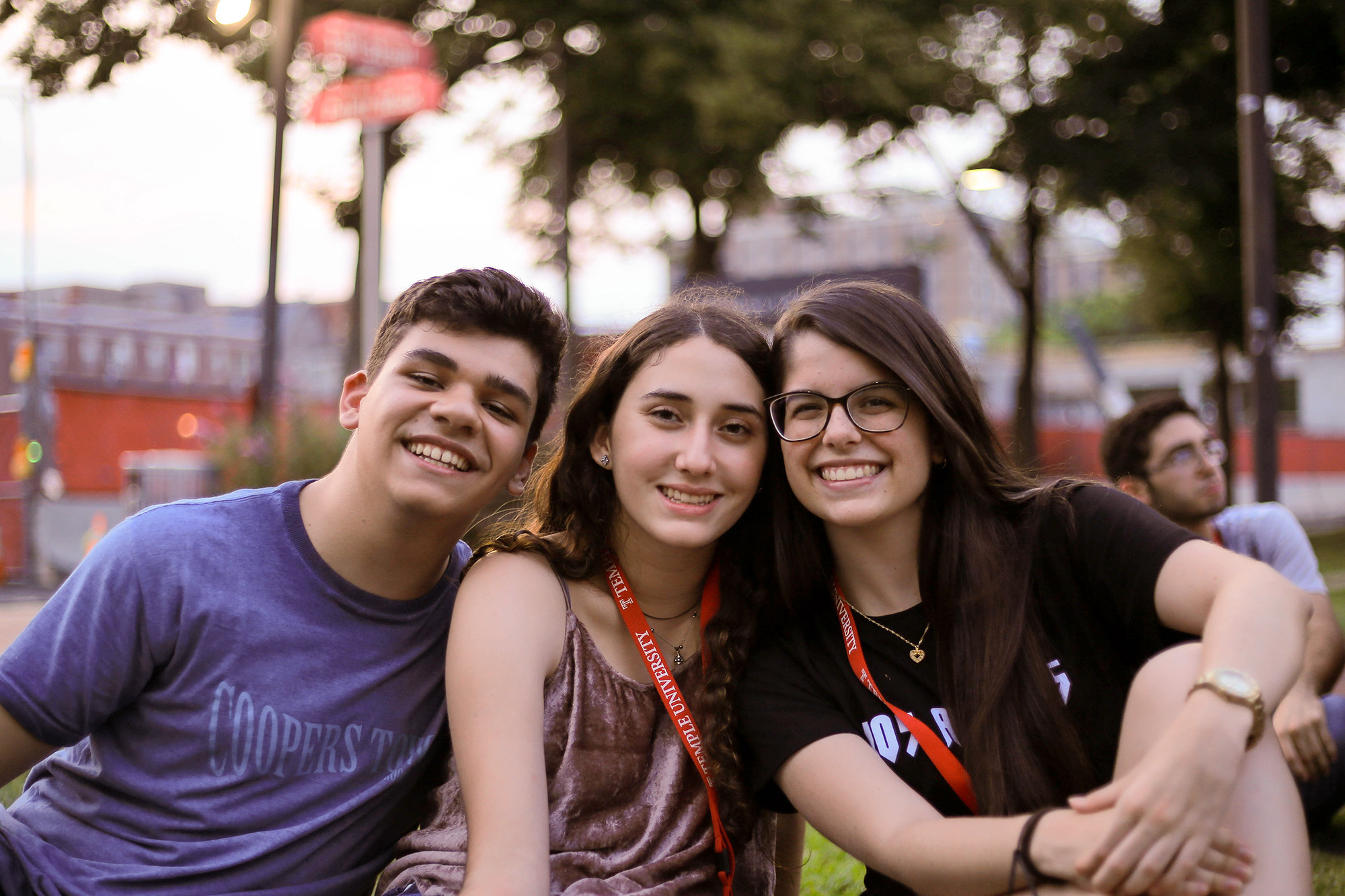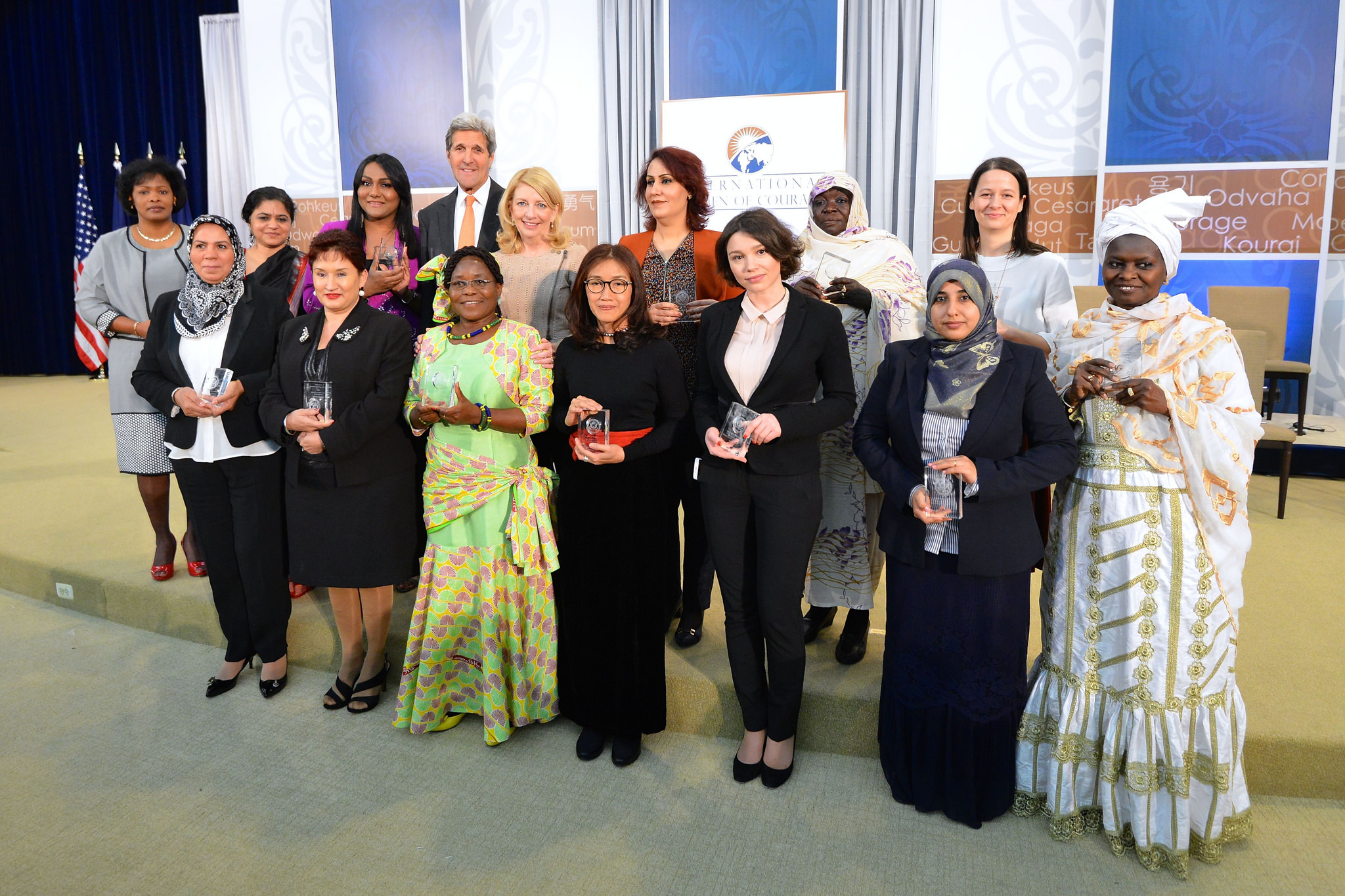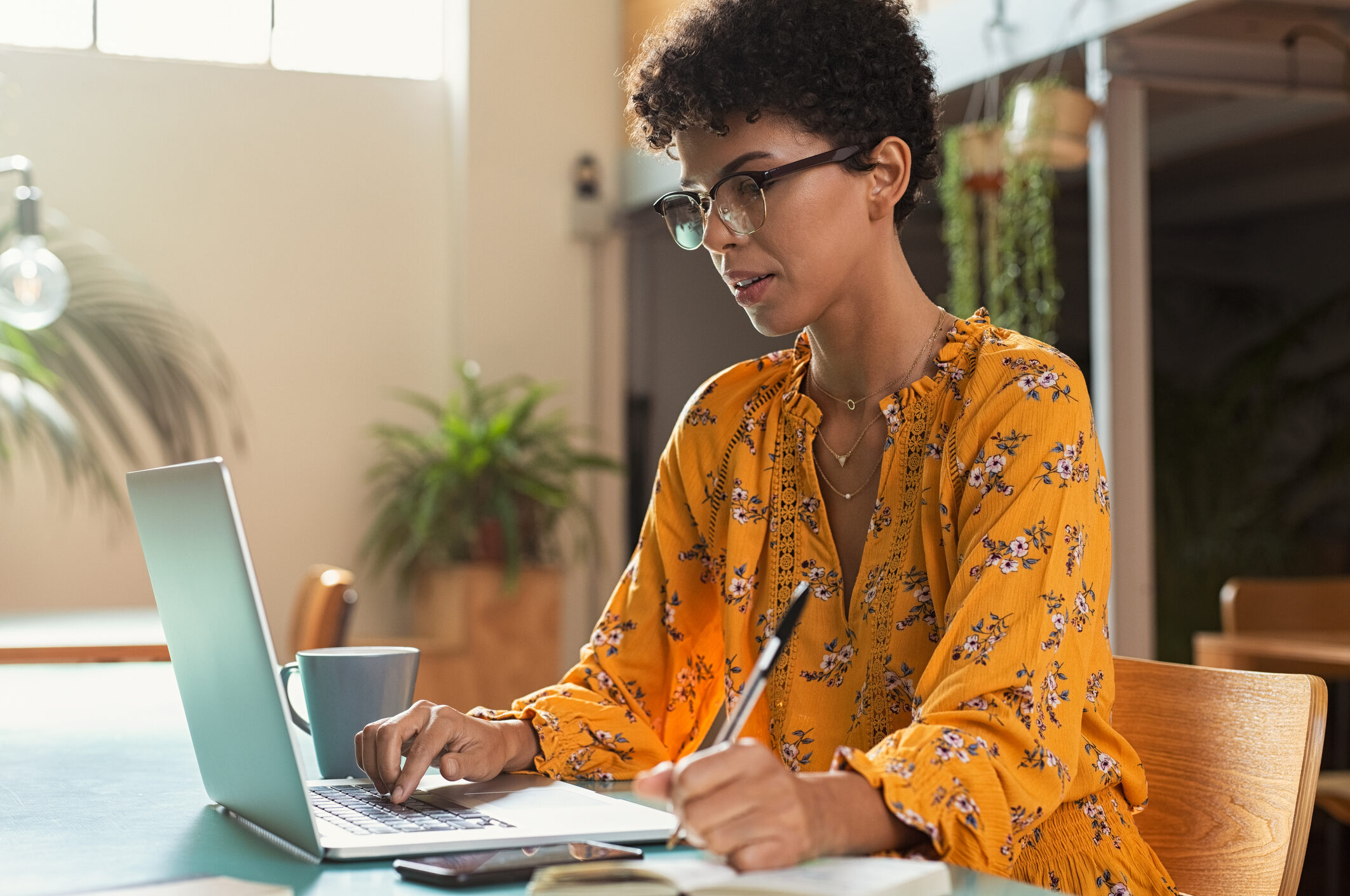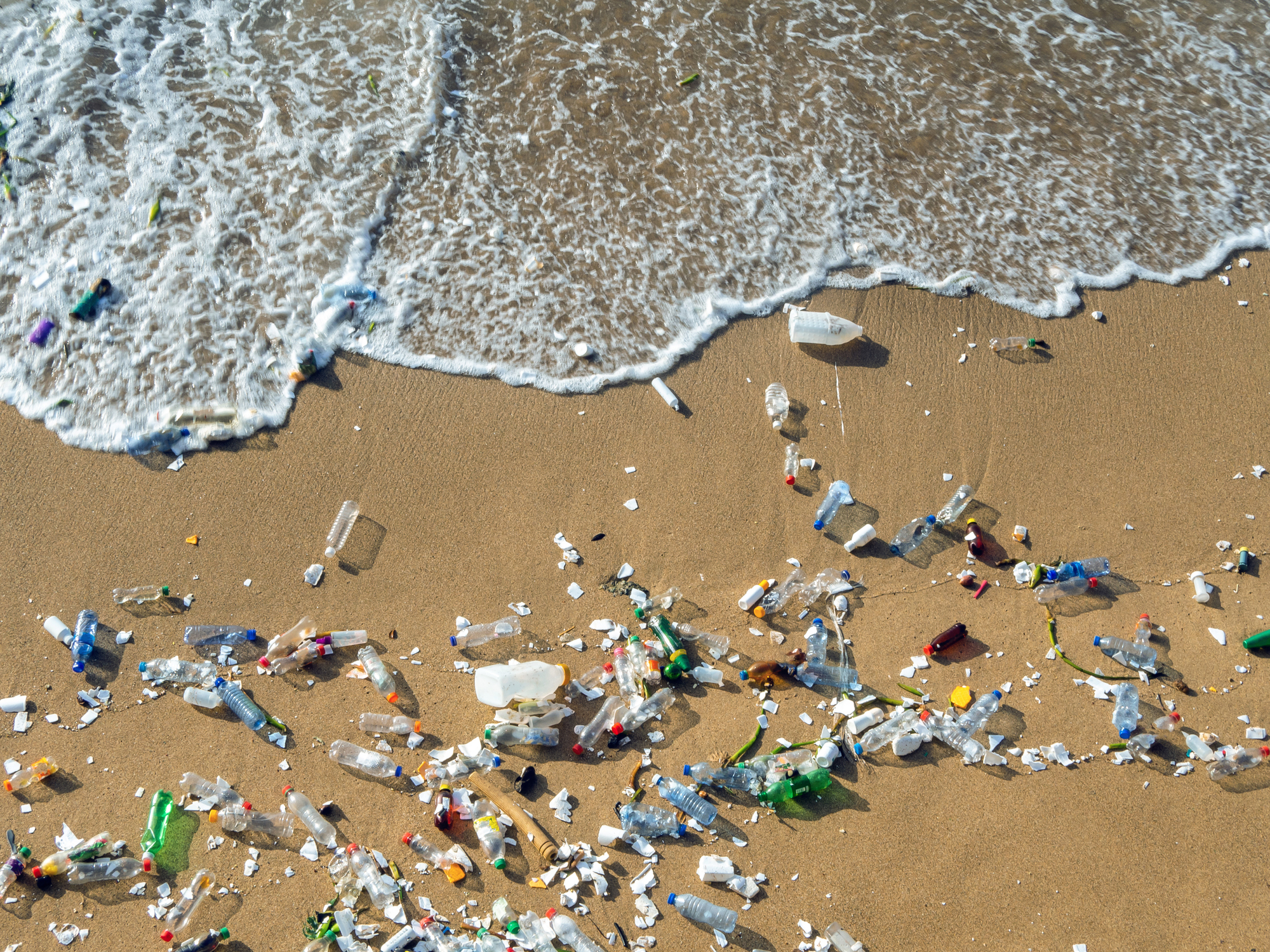-
What We Do
- WHERE WE WORK
-
About Us
 Welcome Message from Carol Jenkins
Welcome Message from Carol JenkinsFor more than 90 years, World Learning has equipped individuals and institutions to address the world’s most pressing problems. We believe that, working together with our partners, we can change this world for the better.
On my travels, I’ve had the opportunity to meet with many of those who have joined us in this mission. In Baghdad, we’ve trained more than 2,300 Iraqi youth who are already giving back at home. In London, our partners in the TAAP Initiative strongly believe that we are all responsible to practice inclusion. And in Vermont, our Experiment in International Living and School for International Training participants prove every day that they have the tools and the determination to change the world.
Please join us in our pursuit of a more peaceful and just world.
- Get Involved
Country: Philippines
Meet the Modern Leaders Who Are Empowering Women Around the World
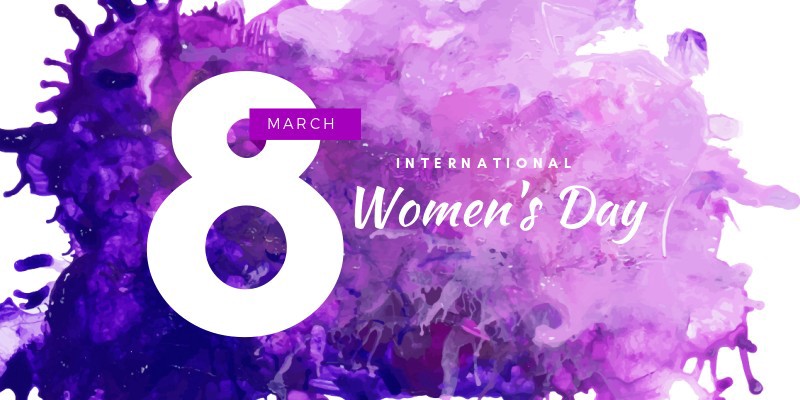
International Women’s Day, celebrated globally on March 8, is an opportunity to celebrate the social, economic, cultural, and political achievements of women and efforts to support them.
At World Learning Inc. — which includes World Learning, The Experiment in International Living, and School for International Training (SIT) — we work with emerging leaders around the world, equipping them with the skills and support to drive change in their communities and beyond. For example:
- World Learning’s diverse portfolio of global development and exchange programs strengthens leadership, intercultural understanding, and civic engagement among young people and adults; strengthens education systems; trains people in 21st-century skills, and more.
- The Experiment in International Living offers immersive study abroad experiences that give high school students a chance to explore the world while broadening their worldview and developing soft skills that will help them succeed in college and their careers.
- School for International Training prepares students to be interculturally effective global citizens through field-based academic study abroad programs for undergraduates and accredited master’s degrees and certificates for graduates and professionals.
Today, we’re shining a light on how nine of our more than 125,000 alumni are working to empower women and make the world a more inclusive and just place.
World Learning alumni return to their communities and, using their new skills, networks, and small grant funding, become changemakers.
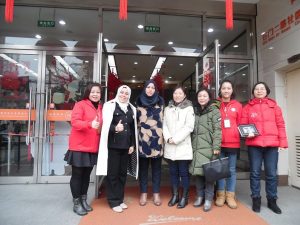 Nacira Amari
Nacira Amari
Nacira Amari has dedicated her career — which has taken her from mathematics professor to politician and director of an education institution — to creating new opportunities for women in Algeria. Amari joined the Leaders for Democracy Fellowship program, which provides academic and hands-on training to civil society leaders from across the Middle East and North Africa. There, she built her network and gained practical skills by working at the Arab Institute for Woman at Lebanese American University.
Those new skills have helped her make a difference. In 2017, Amari was elected to the Saida city council, where she has worked to increase women’s representation in government and to open schools that provide women with job skills training. She continues to urge other women to lead in their communities, too. “Women are [stronger] by developing themselves and then changing their society,” she says. “Victory is the ally of women who give others a better life.”
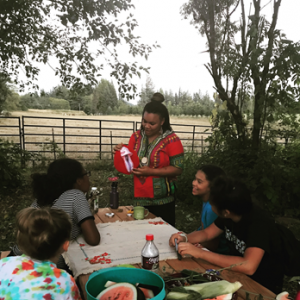 Allie Dyer
Allie Dyer
Former Fulbright U.S. student to Ghana Allie Dyer — along with other black, indigenous and leaders of color— noticed that health education was failing young women of color in their community of Portland, Oregon. They set out to change that. In 2017, Dyer earned a small grant to co-launch the program Brown Girl Rise. She did so after participating in the New Frontiers of Global Public Health seminar organized by U.S. Alumni Ties, which brings together alumni of U.S. government-sponsored exchange programs to learn about critical issues and collaborate with fellow alumni.
Brown Girl Rise leads health education and radical empowerment workshops rooted in community and culture for young girls and women in Portland. They discuss sisterhood and safe spaces, explore their historical connections to food and land, and share how racial and gender stereotypes impact how they view their bodies. “What we’ve learned is the holistic power of community — that community itself can be healing,” Dyer writes.
Brown Girl Rise is funded through an Alumni Thematic International Exchange Seminars (Alumni TIES) small grant from the U.S. Department of State, with funding provided by the U.S. government and administered by World Learning.
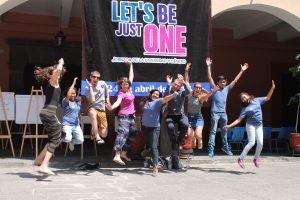 Alitzel Castillo, Jazmín Villalobos, Roberta S. Jacobson, Gladys Del Ángel, and Emmanuel Galindo
Alitzel Castillo, Jazmín Villalobos, Roberta S. Jacobson, Gladys Del Ángel, and Emmanuel Galindo
Violence against women is a serious problem facing communities around the world. In Puebla, Mexico, one group of high school students banded together to tackle that problem. In 2016, Alitzel Castillo, Jazmín Villalobos, Roberta S. Jacobson, Gladys Del Ángel, and Emmanuel Galindo took part in Jóvenes en Acción, a U.S. Department of State exchange program that builds civic engagement and leadership skills among students in Mexico. As part of the program, participants carry out projects in their communities.
These high schoolers launched a campaign to raise awareness about gender violence and the stereotypes that perpetuate it. “We knew that we had to make teenagers see that gender violence does not look just like some guy hitting a woman, or like street harassment,” Castillo writes in an email, “it looks more ‘familiar’ for all of us because we live surrounded by stereotypes and gender roles.” The students offered a series of workshops exploring gender stereotypes, LGBTQ issues, and sexual harassment, culminating in a Diversity and Gender Day, which brought more than 700 people for activities devoted to gender and inclusion.
The Jóvenes en Acción Program is sponsored by the U.S. Department of State with funding provided by the U.S. Government and administered by World Learning.
School for International Training alumni put their skills into practice, advancing social justice in their careers and lives.
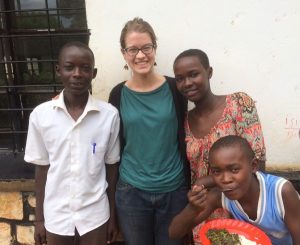 Leslie Massicotte
Leslie Massicotte
Alice Rowan Swanson fellow Leslie Massicotte, an alumna of SIT Rwanda: Post-Genocide Restoration and Peacebuilding, works in Kigali, Rwanda, with the youth center Mind Leaps. The center aims to give at-risk youth a place for education, training, and fun. Massicotte, an ESL teacher, saw increasing numbers of pregnancies among the young women at the center, so she used the Swanson Fellowship support to bring sexual and reproductive education to Mind Leaps.
“The whole idea is to use the money to start the teaching, but to make the project sustainable and able to run without my help,” she says. Leslie sees this effort as a natural outgrowth of studying with SIT. “My passion for giving back, serving others, and being abroad came together at SIT.”
Read more about Massicotte’s work here.
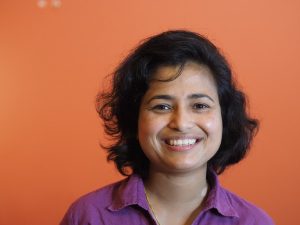 Suman Pant
Suman Pant
Suman Pant, academic director of SIT Nepal: Development, Gender, and Social Change in the Himalaya, strives to show students how the currents of gender and development intertwine in Nepal. Her PhD dissertation examined Nepal’s community forestry, in which women play a key role. “This idea of conservation emerges from eco-feminism theories. In Nepal, community forestry is very interesting because that’s the only platform where the national law mandates that there should be more women board members than men.”
Such ideas are relatively new to Nepal, Pant explains. “Thirty years ago, when education was still scarce and a little bit expensive, men went to school. Women didn’t. The illiteracy rate among women was very, very high. Now when you go to schools you’ll see — in primary schools, secondary schools — girls and boys [are] almost an equal percentage. I think Nepal’s case in terms of gender is very interesting because it has transitioned quite a bit, and at a fast pace and quite healthily, too.”
See a video of Pant discussing her program here.
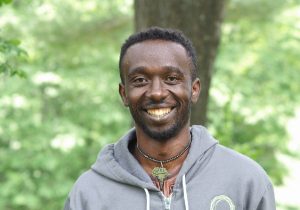 Sunday Justin
Sunday Justin
Sunday Justin has ties both to SIT Study Abroad and SIT Graduate Institute. He’s an alumnus of the CONTACT summer peacebuilding program, and academic coordinator for SIT in Rwanda. He’s part of our list for International Women’s Day for his women-focused work.
Rwanda’s civil war and genocide left many women who had become pregnant through rape. Sunday co-founded Iteme Foundation, which aims to support and empower not only the victims of rape, but also young mothers for whom prostitution has become a dangerous way out of poverty that often leads to pregnancy or HIV infection.
Being a single mother, Sunday says, “comes with a stigma. It comes with a judgment; it comes with a lot of conflict between them and their family and their children.”
Sunday’s story is part of SIT’s OnSITe podcast series.
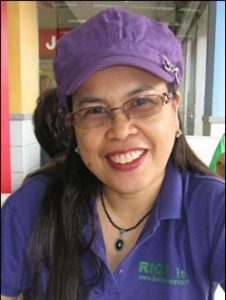 Vicky Garcia
Vicky Garcia
Vicky Garcia and Mary Hensley met in the early 2000s as International Management students at SIT Graduate Institute. After graduating from SIT, Garcia returned to her native Philippines, joining forces with Hensley to bring a new kind of economic security to the indigenous rice farmers of the Cordillera region of the Philippines. Building that kind of empowerment among indigenous farmers made sense to Garcia not only as a farmer’s daughter, but as someone who’d overcome physical and cultural challenges. She had contracted polio as a child and was left unable to walk.
Despite being told she’d never amount to anything because of her disability, Garcia eventually worked for the Philippine government, then came to the United States to attend SIT. Back home, she made her way to the very remote steppes of the Cordillera, where she has since helped farmers get assistance from the government and connected them to customers all over the world who appreciate the unique heirloom species of rice they grow. She runs Rice Inc. with Hensley.
Listen to their story here.
Experiment in International Living alumni return home transformed — and channel that transformation into their high schools and communities.
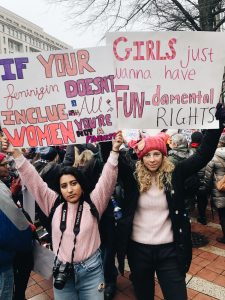 Yareni Murillo
Yareni Murillo
Yareni Murillo has been an activist since her freshman year when, as one of few Latinas in a mostly white high school, she sought ways to connect with other students and founded the school’s first Hispanic Club. “I realized that if no one else is going to speak for me, then I have to speak up for myself,” she says.
Last summer, Yareni traveled to India with The Experiment — an experience she describes as the best in her life. Visiting a new country with a diverse, all-female group led to empowering discussions about intersectionality and patriarchy.
Yareni is now working on a digital history project about Mexican-American women in the Chicano movement, who are often overshadowed by men. She brought a sign to this year’s Women’s March in Washington, DC, that read, “If your feminism doesn’t include all women, then it’s not feminism.”
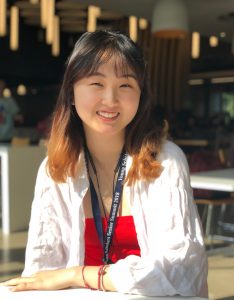 Hayeon Kayla Lee
Hayeon Kayla Lee
Hayeon Kayla Lee went to Japan as a high school freshman, in part to confront some deeply held family beliefs. Some of her relatives experienced Japanese imperialism in South Korea during World War II and still harbored very negative opinions about Japan.
“I always feel that the way to solve conflict and interact with others is through learning the background and history of a culture you might not understand,” says Hayeon, now a senior at a boarding school in New Hampshire. That summer in Japan with The Experimentwas a turning point that helped Hayeon begin to separate her own views from her family’s.
When she’s at home in Los Angeles, Hayeon tutors students in her inner-city neighborhood, focusing on helping girls from low-income and immigrant backgrounds improve their English and creative writing.
As for her own education, in college Hayeon wants to study abroad again — in Japan.
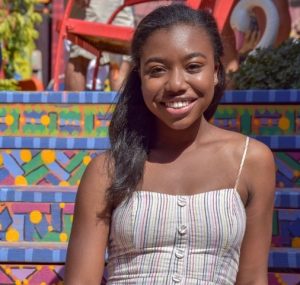 Lauren Jasper
Lauren Jasper
Lauren Jasper used to notice the Ujamaa Collective storefront in her Pittsburgh neighborhood, but didn’t know much about the nonprofit until last year, when the aspiring architect took a class at her high school called Global Leadership by Design. That’s where she found out about Ujamaa’s mission to create entrepreneurship and education opportunities for Africana women.
The same year, Lauren went to South Africa on The Experiment’s Leadership and Social Change program — an experience that ultimately drew her closer to Ujamaa’s purpose and her own. South Africa’s history of apartheid and social justice resonated with her, and the leadership aspect of the program was particularly important to Lauren, who knows she’ll need those skills in a the United States, where only 400 black women have ever been licensed as architects.
As a busy senior, Lauren still finds time to help in the Ujamaa boutique and create programming for teens. Through her architecture studies at Cornell, she hopes “to carry social justice into my designs to create affordable and sustainable housing.”
Philippines
Anna Oposa Dives into Conservation
Alumni Thematic International Exchange Seminars
Participant Profile
Participants are alumni of U.S. government-sponsored exchange programs and vary in age and level of expertise, but all will be engaged in the seminar topic and highly motivated to create change in their communities.
Please consult the list of U.S. government-sponsored exchange programs below.
- U.S. citizen: https://exchanges.state.gov/us
- Non-U.S. citizen: https://exchanges.state.gov/non-us
Participant Selection
Alumni TIES participants who are not U.S. citizens are nominated by the U.S. Embassies or Consulates in their countries. Please contact the U.S. Embassy or Consulate in your country to learn how you can participate in Alumni TIES. Potential Alumni TIES participants who are living in the United States can apply for specific seminars managed by World Learning. The web link to the online application will be distributed widely by the Office of Alumni Affairs of the Bureau of Educational and Cultural Affairs.
All participants for Alumni TIES seminars are selected by the U.S. Department of State.
Program Design
Alumni TIES seminars take place in six world regions and the U.S.; each seminar is three to four days for small groups of alumni. The seminars include speakers, capacity development trainings, and alumni networking activities. Through the small grants initiative, alumni have the opportunity to take action and make a positive difference in their communities.
Learn More
Watch more videos about the Alumni TIES program.
Read stories from past participants about their experiences at the seminars or with their small grant projects on the Alumni TIES blog.
For information on programs for U.S. government-sponsored exchange program alumni visit the International Exchange Alumni website.
Alumni TIES is sponsored by the U.S. Department of State with funding provided by the U.S. Government and supported in its implementation by World Learning, in partnership with the Office of Alumni Affairs of the Bureau of Educational and Cultural Affairs (ECA).
Digital Communication Network
Examples of Past Digital Communication Network Projects
- Internet vs. Democracy Forum
- Roaring 20s #Digital Forum
- Combatting Disinformation Training Program
- Digital and Media Literacy for NGOs Training Program
- Tolerance and Coexistence 2.0 Forum
- Montenegro Digital Influencers Hub
- Humor and Games for Social Good Forum
Fulbright Specialist Program
What?
Link U.S. Experts and International Institutions
A program of the U.S. Department of State, Bureau of Educational and Cultural Affairs, the Fulbright Specialist Program is a unique opportunity for U.S. academics and established professionals to engage in two- to six-week consultancies at host institutions across the globe. Host institutions, including universities, non-profits, and other organizations, develop and submit projects for approval by the U.S. Embassy or Fulbright Commission in their country in wide-ranging academic and professional fields that build capacity and promote long-lasting linkages between individuals and institutions in the U.S. and abroad.
Why?
Address Priorities and Build Institutional Capacity at Institutions Around the World
An important companion to the traditional Fulbright Scholar Program, the Fulbright Specialist Program differs by providing short-term exchange experiences that tackle discrete, sometimes rapid response, projects. The Fulbright Specialist Program encourages participation of both university faculty and highly experienced non-academics, including legal experts, business professionals, public health practitioners, scientists, IT professionals, artists, and journalists. The program is a mutually beneficial opportunity for the Specialist who may not be available to leave their position for an extended period of time and the host institution which needs an experienced partner to jointly tackle a problem or examine an issue on a short-term basis.
How?
Become a Fulbright Specialist: Apply to Join the Roster
Fulbright Specialists are a diverse group of highly experienced, well-established faculty members and professionals who represent a wide variety of academic disciplines and professions. In order to be eligible to serve as a Fulbright Specialist, candidates must have significant experience in their respective professional field and be a U.S. citizen at time of application. Eligible disciplines and professional fields supported by the Fulbright Specialist Program are listed below.
- Agriculture
- American Studies
- Anthropology
- Archeology
- Biology Education
- Business Administration
- Chemistry Education
- Communications and Journalism
- Computer Science and Information Technology
- Economics
- Education
- Engineering Education
- Environmental Science
- Law
- Library Science
- Math Education
- Peace and Conflict Resolution Studies
- Physics Education
- Political Science
- Public Administration
- Public/Global Health
- Social Work
- Sociology
- Urban Planning
Interested candidates can find more information about the Fulbright Specialist Program and apply to serve as a Specialist at fulbrightspecialist.worldlearning.org. Candidates who meet all eligibility requirements will have their full applications reviewed by a panel of their professional peers. Candidates who are approved by the peer review panels will then join the Fulbright Specialist Roster. Individuals remain on the Specialist Roster for a three-year term and are eligible to be matched with a host institution’s project abroad during that tenure.
The following costs are covered for those Fulbright Specialists who are matched to a project: international and domestic airfare, ground transportation, visa fees, lodging, meals, and incidentals. A daily honorarium is also provided.
Become a Host: Bring a Fulbright Specialist to Your Institution
The Fulbright Specialist Program allows universities, cultural centers, non-governmental organizations, and other institutions abroad to host a leading U.S. academic or professional to work on diverse, short-term collaborative projects where the Specialist conducts activities which may include, but are not limited to:
- Delivering a seminar or workshop
- Consulting on faculty or workforce development
- Developing academic or training curricula and materials
- Lecturing at the graduate or undergraduate level
- Conducting needs assessments or evaluations for a program or institution
Institutions interested in hosting a Fulbright Specialist should contact their local Fulbright Commission or U.S. Embassy for country-specific requirements and deadlines.
Contact information for all participating countries is available on the fulbrightspecialist.worldlearning.org website.
For more information or questions about the Fulbright Specialist Program, please email [email protected].
The Fulbright Specialist Program is a program of the U.S. Department of State with funding provided by the U.S. government and administered by World Learning.
Global Undergraduate Exchange Program
For highlights from the Global UGRAD Program, visit our newsletter, the Global Gazette.
EducationUSA Academy
For further information: [email protected]
“Through EducationUSA Academy, I made new friends from all over the world, I learned about the American education system and requirements for getting accepted to an American university, and I visited one of the most interesting places in the United States in a friendly and helpful group.” -2017 EducationUSA Academy participant
Student Eligibility
Participants must:
- Be students (currently enrolled or recently graduated), ages 15-18 at the time of the summer program;
- Have at least three years of middle to high school English language study (language requirements may vary slightly by institution);
- Be mature and self-disciplined, with a commitment to active participation in the Academy and its programming;
- Aspire to pursue a portion of their higher education in the U.S.; and
- Have sufficient personal funds to cover program fees and international airfare.
More information is available from your local EducationUSA adviser. To find your local EducationUSA advising center, please visit the EducationUSA website.
Follow the program on Facebook, Twitter, and Instagram.
EducationUSA Academy is sponsored by the U.S. Department of State with funding provided by the U.S. Government and administered by World Learning.
Global UGRAD
International Visitor Leadership Program
End of Year Report
Chosen by U.S. embassies worldwide to participate, distinguished professionals include:
- parliamentarians
- government officials
- entrepreneurs
- NGO leaders
- journalists
- academics
- arts administrators
- mid-career professionals
Programs focus on policy issues in areas such as:
- government
- international security
- foreign policy
- entrepreneurship
- economics and trade
- media
- women’s leadership
- education
- public health
- arts
- agriculture
- disability rights and inclusion
World Learning staff members design national itineraries, arrange logistics, set up meetings in Washington, DC, and coordinate the collaboration of U.S. Department of State program officers, interpreters and International Visitor Liaisons, and more than 85 community-based member organizations from the Global Ties U.S. Network who arrange local programs nationwide.
Participants
Most participants are mid-career professionals and emerging leaders, and for many, this is their first visit to the U.S. Groups are of varying sizes, from single visitors to groups of 25 or more. World Learning program staff work closely with their State Department counterparts to design a program customized to the project objectives and the visitors’ interests.
Participant Selection
IVLP candidates are selected solely by U.S. embassy personnel in each country. There is no application form. World Learning is a private sector partner of the U.S. Department of State; our role is limited to designing programs for participants once they arrive in the U.S. For further information regarding the program, please consult the U.S. Department of State’s website.
Program Design
A typical project includes up to a week of meetings in Washington, DC, to provide an orientation and overview of the theme and to introduce visitors to federal officials and agencies, national organizations, academics and think tanks, nonprofits and NGOs, and professionals in their specific field of interest. All projects include a briefing on the US federal system of government. Meetings may include panel discussions, site visits, workshops, individual interlocutors, job shadowing, or service opportunities. Visitors typically travel to an additional three or four cities in geographically diverse regions of the country; the itinerary may include a state capital and a small town to provide first-hand exposure to the great diversity that exists in the U.S. Also included in the program design are hospitality dinners, school visits, community service activities, and cultural events such as rodeos, state fairs, festivals, visits to national parks, or events that highlight some unique aspect of the region visited.
Participant Experience
“My recent experience in the IVLP program is so far the deepest ever for me to see and understand the full picture of what America as a country is like. I strongly believe this program will have a very long-term impact on my views about America and the world and to some extent it has already helped me to understand many long-time questions.” – Journalist from China
The International Visitor Leadership Program is sponsored by the U.S. Department of State with funding provided by the U.S. Government and administered by World Learning.
Online Professional English Network Program (OPEN Program)
2022 YSEALI Regional Workshop: Marine Warriors
Event Overview
The 2022 Young Southeast Asian Leaders Initiative (YSEALI) Regional Workshop: Marine Warriors brings together 100 participants from ASEAN countries and Timor-Leste to Nha Trang, Vietnam from December 1-6, 2022. This hand-on workshop will involve participants engaging in interactive skill-building training sessions, expert presentations and case studies, a site visit to learn about efforts to protect Vietnam’s fragile coastal environments and environmental issues firsthand, and a game jam. The game jam is an exciting hackathon-style component, joining together environmentalists and game developers across the ASEAN region and Timor-Leste to innovate and develop solutions for marine environmental degradation via game production.
Participant Eligibility
Applicants must:
- Be between the ages of 18 and 25 at the time of application;
- Be a citizen and a resident of one of the following countries: Brunei, Burma, Cambodia, Indonesia, Laos, Malaysia, Philippines, Singapore, Thailand, Timor-Leste, or Vietnam;
- Be a YSEALI member. You may either be an existing YSEALI member, or you can become a member at https://asean.usmission.gov/yseali/;
- Be proficient in reading, writing, and speaking English;
- Demonstrate strong leadership qualities and potential in your university, place of work, and/or community;
- Demonstrate interest, knowledge, or professional experience in environmental sustainability and sustainable development;
- Be willing to actively participate in an intensive program in Vietnam and follow-on projects in your home-country; and
- Have a commitment to apply leadership skills and know-how to benefit your community, country, or the ASEAN region.
The workshop will include a component of gaming for social good. While game development skills are not needed for selection, we count on your commitment to participate in the gamification-related segments of our workshop.
Participant Commitment
Prior to the program, participants will be asked to produce a story, using multimedia or digital platforms, about environmental coastal degradation (preferred), or any environmental or civic issues relevant to their home countries. Participants will attend the Workshop and present their stories. Additionally, participants will join several virtual training sessions prior to the program in December and are expected to join post-program engagement activities including actively supporting influencer hubs in their home countries focusing on using gaming in support of environmental protection.




